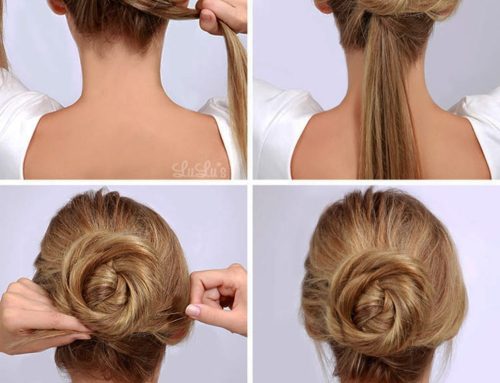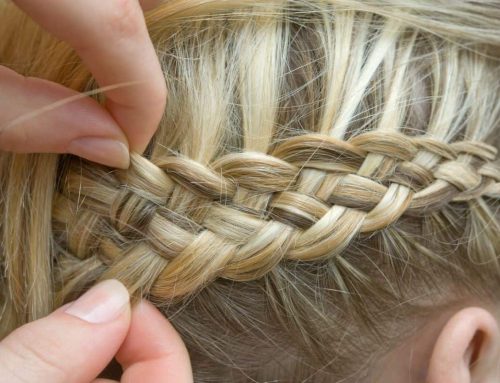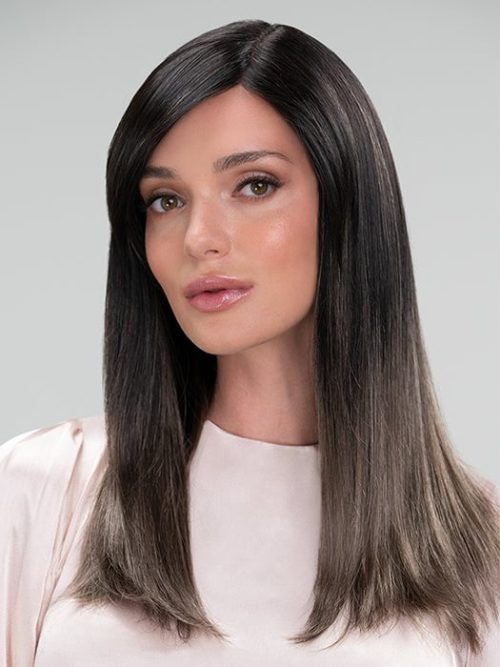Creating a detailed and comprehensive guide that meets your criteria will take a nuanced approach, focusing on personal experiences, practical advice, and emotional connections with the reader. Here’s an outline for a more in-depth article:
Introduction: The World of Wigs
Hey there! Ever wondered why so many people are into wigs? Let me take you on a journey through the colorful and diverse world of wigs, a place I stumbled into a few years back, and boy, was it an eye-opener!
I remember the first time I saw someone wearing a wig. It was at a costume party, and my friend showed up with these luscious, vibrant locks that flowed down her back. I was stunned, thinking she had magically grown her hair overnight! But later, she revealed her secret: a wig. That moment sparked my curiosity and led me down a path I never expected, exploring why folks choose to don these fabulous hairpieces.
Wigs aren’t just about throwing on a new hairstyle. They carry stories of transformation, confidence, and sometimes, necessity. Some people wear wigs for medical reasons, like dealing with hair loss from chemotherapy or alopecia. Others use them as a canvas for self-expression, enjoying the freedom to change their look without altering their natural hair. And then there are those, like me, who initially saw wigs as just fun accessories but soon discovered their power to transform not just how we look but how we feel about ourselves.
Choosing the right wig, however, is no simple task. It’s not just picking a color or style that you like; it’s about finding the perfect fit for your lifestyle and personality. There are full lace wigs that offer versatility and a natural look, front lace wigs that provide a realistic hairline with less hassle, and non-lace wigs that are durable and budget-friendly. Each type has its own set of pros and cons, and navigating through them can be a journey of its own.
In this guide, I’ll share everything I’ve learned about wigs—from the basics of different wig types and how to prepare your hair and scalp, to selecting, fitting, and caring for your wig. We’ll dive into the nitty-gritty of wig maintenance, styling tips, and how to tackle common wig issues. Whether you’re a wig newbie or looking to deepen your wig knowledge, this journey is for you. So, let’s get started and uncover the fascinating world of wigs together!
The Diversity of Wigs: Types and Choices
Preparing for Your Wig: Laying the Foundation
Hair and Scalp Prep
Before you even think about slipping on that wig, let’s talk about what needs to happen first. Prepping your natural hair and scalp is crucial for a comfortable and secure wig fit. For those with long hair, it’s all about getting your locks as flat as possible. I used to struggle with this until I learned to divide my hair into sections, twist them tightly, and pin them down. It was a game-changer!
For the short-haired folks, it’s simpler but equally important. Comb your hair smoothly away from your hairline and secure it flat against your scalp. Using a wig cap can help keep everything in place. Speaking from experience, the right wig cap can make a world of difference. It not only helps to conceal your natural hair but also prevents the wig from slipping.
Skin Prep
Next up is skin preparation. I learned the hard way that skipping this step can lead to irritation and a less secure wig fit. Start by cleaning the skin around your hairline with a gentle alcohol solution to remove oils and build-up. Then, apply a scalp protector to form a barrier between your skin and the wig adhesive. This was a tip I picked up from a fellow wig-wearer at a meetup, and it has saved my skin, quite literally, from potential irritation and damage.
Choosing and Trying on Wigs
Selecting the Right Wig
Now, onto the fun part – choosing your wig! The key is to find a wig that complements your face shape and skin tone. I remember my first wig shopping experience; I was overwhelmed by the choices. But then I learned to focus on wigs that enhanced my facial features and matched my skin’s undertone. Whether you’re into bold and daring styles or something more subdued and natural, there’s a wig out there for you.
The Try-On Process
Trying on wigs can be an adventure. It’s not just about how the wig looks, but also how it feels. The wig should sit comfortably on your head, without being too tight or too loose. Adjusting the wig to fit snugly while ensuring it aligns with your natural hairline is crucial for a realistic look. My first try-on session was a bit clumsy, but with practice, I got the hang of it. Take your time to adjust the wig cap and wig until you’re happy with the fit and appearance.
Stay tuned as we delve deeper into the world of wigs, exploring application techniques, daily care, styling, and troubleshooting common wig-related issues.
Prepping for Perfection: Hair and Scalp Preparation
Prepping for Perfection: Hair and Scalp Preparation
Getting Your Hair Wig-Ready
Let’s dive into how you can prep your natural hair for the perfect wig fit. If you’ve got long hair, like me, the goal is to flatten it so your wig sits nicely without any bumps. I learned to braid my hair in tight cornrows against my scalp; this not only keeps it flat but also distributes the hair evenly under the wig. For those with shorter hair, smoothing it down with gel or a light hairspray can work wonders to achieve a flat surface.
Scalp Care: The Unsung Hero
Your scalp’s condition is just as important as your hair when it comes to wearing a wig. A clean, healthy scalp means a more comfortable wig-wearing experience. Before donning your wig, ensure your scalp is clean and free from any product buildup. I use a gentle, non-irritating cleanser to remove any oils or residues. After cleansing, applying a lightweight, non-greasy scalp serum can help protect your skin from the friction of the wig cap.
Ensuring a Secure and Comfortable Fit
Choosing the Right Wig Cap
Wig caps are your best friend when it comes to wig wearing. They not only help to keep your natural hair in place but also protect your scalp from the wig’s internal structure. I’ve experimented with various types of wig caps and found that breathable, thin caps work best for me. They provide a layer of protection without causing overheating or discomfort.
Importance of a Well-Fitted Cap
A wig cap that fits well is crucial. Too tight, and it can lead to headaches and pressure marks; too loose, and it won’t secure your hair properly or might slide off. I always ensure the cap covers all my natural hair and sits snugly around my hairline without pinching or slipping. This creates a smooth surface for the wig to sit on and helps prevent any natural hair from peeking out.
In the next section, we’ll explore how to select the perfect wig for your style and the nuances of trying on wigs to find that perfect match. Stay tuned for more insider tips on navigating the wig world like a pro!
Selecting the Perfect Wig: Fit and Style
Selecting the Perfect Wig: Fit and Style
Tailoring to Your Face Shape and Skin Tone
Choosing the right wig is like picking the perfect outfit; it should complement your features and make you feel great. For different face shapes, different wigs work best. If you have an oval face, lucky you! Most wig styles will suit you. Round faces benefit from layered or spiky wigs that add height and slim the face. Square faces? Go for wigs that soften the jawline, like long, flowing layers or gentle curls.
Skin tone plays a big role, too. I remember the first time I chose a wig without considering my skin tone; it was a disaster! Cooler skin tones shine with dark brown, black, or blonde shades, while warmer tones glow in honey blondes, rich browns, or auburn shades. It’s about enhancing your natural beauty, not overshadowing it.
First-Time Wig Fitting Experiences
Trying on wigs can be daunting. The first time I tried on a wig, I felt overwhelmed. There are so many styles, colors, and fits! But here’s a tip: start with a style similar to your natural hair or something you’ve always wanted to try. This familiarity can make the experience less intimidating.
Adjusting the wig for comfort is key. Most wigs have adjustable straps inside, allowing you to tighten or loosen the fit. Make sure the wig aligns with your natural hairline and doesn’t pinch or feel too loose. Comfort is just as important as style; after all, you’ll be wearing it for hours!
Wig-Trying Insights
When trying on wigs, it’s not just about the visual appeal but also how it feels. Is the cap itchy? Does the hair fiber feel natural? These are important factors. Take the time to move around, shake your head, and see how the wig holds up. A wig that slips or shifts easily is a no-go.
In retrospect, my journey to finding the perfect wig involved a lot of trial and error, laughter, and learning. Sharing these experiences is like passing on the wisdom of wig-wearing – it’s all about embracing the process and discovering what makes you feel fabulous.
Next, we’ll delve into applying your chosen wig with finesse and ensuring it looks as natural as possible. Stay tuned for practical advice on mastering the art of wig application!
Mastery in Application: Securing Your Wig
Mastery in Application: Securing Your Wig
The Art of Using Wig Glue and Adhesive Tape
Securing your wig properly is crucial for that flawless, natural look. I learned the hard way that a good application starts with the right adhesive. Wig glue and double-sided adhesive tape are popular choices, each with its pros and cons.
Wig glue offers a strong hold, ideal for longer wear. When I first used wig glue, it was a game-changer. Apply a thin layer along your hairline, wait until it becomes tacky, then press the wig down gently. The trick is not to rush; letting the glue set properly makes all the difference.
Adhesive tape, on the other hand, is great for quick applications or those with sensitive skin. It’s less messy and easy to apply. Space out the strips along your hairline and press the wig onto the tape. One hack I discovered is to overlap tape strips slightly for a stronger hold, ensuring the wig stays in place even on windy days.
Solving Application Issues: Slipping and Edge Lifting
No matter how good your wig looks, slipping or edge lifting can ruin the effect. Slipping often occurs when the wig isn’t fitted correctly or the adhesive isn’t strong enough. I remember attending a friend’s outdoor wedding on a breezy day. Midway through the event, my wig started to slip back. It was embarrassing! I learned to always do a ‘wig shake test’ before leaving the house to ensure it’s secure.
Edge lifting, where the front of the wig detaches from the skin, can be equally troublesome. To combat this, I apply extra adhesive to areas prone to lifting, like the temples and nape. Also, carrying a small adhesive kit for quick touch-ups can save the day.
Personal Anecdotes and Tips
During a summer festival, my wig began to lift at the edges due to the heat. I was panicking until I found a wig vendor who shared a lifesaver tip: use a small amount of medical-grade adhesive for areas prone to sweat and movement. It worked like a charm, and I now always have some in my emergency kit.
In conclusion, applying your wig securely while ensuring a natural look is an art honed with practice and patience. Next, we’ll explore the essential routines for daily wig maintenance and care, ensuring your wig stays beautiful and lifelike for as long as possible.
Daily Wig Care: Maintenance and Storage
Daily Wig Care: Maintenance and Storage
Essential Cleaning and Conditioning
Proper care is crucial for keeping your wig looking its best. Whether it’s synthetic, human, or animal hair, each type demands specific maintenance routines. I learned this through trial and error, plus some tips from a professional stylist friend.
For synthetic wigs, avoid hot water and strong shampoos. Instead, use a mild, wig-specific shampoo in lukewarm water. Gently swish the wig to clean, then rinse and pat dry with a soft towel. Conditioning sprays designed for synthetic hair can add luster and prolong its life.
Human hair wigs require more traditional care, similar to natural hair. You can use gentle hair products and even apply deep conditioning treatments. After washing, let the wig air dry on a stand to preserve its shape and prevent matting.
Storing Your Wig Properly
Storage is just as important as cleaning. Don’t just throw your wig on a chair after a long day! Invest in a wig stand or mannequin head. It keeps the wig’s shape and prevents tangles and flat spots. For long-term storage, place the wig in a silk or satin bag to protect it from dust and moisture.
Learning from Wig Mishaps
Once, I stored my favorite synthetic wig in a plastic bag under heavy items. When I took it out for a special occasion, it was misshapen and irreversibly crinkled. That painful lesson taught me the importance of proper storage. Now, I store my wigs on stands, away from direct sunlight and heat sources, to maintain their quality.
The Payoff of Diligent Care
Regular maintenance not only keeps your wig looking great but also extends its lifespan, saving money in the long run. I’ve had a high-quality human hair wig last for years with diligent care, while my first synthetic wig barely survived a few months due to neglect.
In summary, daily wig care involving proper cleaning, conditioning, and storage is vital for maintaining the appearance and longevity of your wig. Up next, we’ll delve into the exciting world of styling and personalizing your wig to match your unique sense of fashion and identity.
Styling and Personalizing Your Wig
Styling and Personalizing Your Wig
The Art of Wig Styling
Styling a wig offers a canvas for creativity and personal expression. Whether you’re attending a formal event or just want a fresh look for the day, the versatility of wigs can transform your appearance. I’ve had my share of both triumphs and mishaps in wig styling, from elegant updos for weddings to casual waves for picnics.
For synthetic wigs, I stick to styles that don’t require heat, like braids or ponytails, to avoid damaging the fibers. With human hair wigs, however, I use curling irons and flat irons to experiment with various looks. Once, I attempted tight curls on a synthetic wig for a 1920s themed party, not realizing it wasn’t heat-resistant. The result? A melted, unusable mess. Lesson learned: always check the heat tolerance of your wig!
Accessorizing Your Wig
Accessories can make or break a wig style. I love using headbands, clips, and hats to add flair and hide any wig edges. For instance, a boho headband gave a relaxed, stylish look to a straight, dark brown wig, turning a simple style into a fashion statement.
One personal success story involved a plain wig that I transformed with floral accessories for a garden party. Guests complimented me, unaware it was a wig until I shared my secret. This experience showed me the power of accessories in elevating a wig from ordinary to extraordinary.
Integrating Wigs into Everyday Fashion
Wigs can be more than just a solution to hair loss or a fashion statement; they can become an integral part of your daily wardrobe. I rotate between several wigs to match my outfits and occasions, treating them as an extension of my fashion sense. This approach has made wigs a fun and essential part of my personal style.
Experimenting with different wig styles and accessories not only boosts confidence but also allows for creative expression. Whether you’re looking for a subtle change or a dramatic transformation, the right styling and accessories can make your wig a versatile and cherished part of your look.
In the next section, we’ll tackle some common concerns and questions about wearing wigs, offering solutions and advice to ensure you have the best possible experience with your wig.
Overcoming Wig Challenges: Common Issues and Solutions
Overcoming Wig Challenges: Common Issues and Solutions
Battling Itchiness and Discomfort
One of the most common complaints about wearing wigs is the itchiness and discomfort they can cause, especially for new wearers. I’ve had my fair share of itchy scalp days, and over time, I’ve found that wearing a silk or satin wig liner beneath the wig cap greatly reduces this irritation. These soft materials provide a barrier between the wig and your scalp, preventing friction that leads to discomfort.
Hydration is also key. Keeping your natural hair and scalp well-moisturized prevents dryness, which can exacerbate itchiness. I learned this the hard way during a dry winter month when my neglected scalp became unbearably itchy under my wig. Now, I make sure to apply a lightweight, non-greasy scalp moisturizer before donning my wig cap.
Social Situations and Wig Etiquette
Wearing a wig in public can sometimes lead to awkward situations or questions. I’ve been asked whether my hair is real, and while it can be intrusive, I’ve learned to respond with humor and confidence, often saying something like, “It’s as real as I want it to be today!”
Dealing with wind and weather while wearing a wig requires some preparation. A windy day can be a wig wearer’s nightmare. To combat this, I ensure my wig is securely fastened with adhesive tape or wig glue. For added security, I sometimes wear a stylish hat or scarf to keep everything in place.
Conclusion
Wearing a wig should not be a source of stress or discomfort. With the right preparation and care, you can overcome common wig challenges and enjoy the versatility and style that wigs can bring to your life. Remember, confidence is key. Owning your wig-wearing experience, regardless of the reasons or circumstances, allows you to navigate any situation with grace and ease.
In our journey through the world of wigs, we’ve covered everything from choosing the right wig to maintaining and personalizing it. By embracing these tips and tricks, you can enhance your wig-wearing experience, ensuring that your wig is not just an accessory but an extension of your unique style and personality.
Conclusion: Embracing the Wig Lifestyle
Conclusion: Embracing the Wig Lifestyle
Acceptance and Confidence
My journey with wigs started out of necessity, but it evolved into a passion for the versatility and expression they offer. I remember the first time I wore a wig in public, feeling a mix of nervousness and excitement. Over time, I learned that a wig is more than just a hairpiece; it’s an extension of my personality and a tool for boosting my confidence.
For those new to wigs, it’s normal to feel uncertain or self-conscious. But trust me, with each day, you’ll grow more comfortable and confident. Embracing wigs as part of your personal style allows you to experiment with different looks without committing to permanent changes, which is liberating and fun.
Wigs as Tools for Empowerment
Wigs are not just for those experiencing hair loss; they’re for anyone looking to explore different styles, colors, and lengths. They offer the freedom to alter your appearance according to your mood, occasion, or fashion. This adaptability makes wigs a powerful tool for self-expression and personal transformation.
Throughout my wig-wearing journey, I’ve discovered that wigs are more than just hair. They can reflect your mood, complement your outfit, or simply make a statement. The key is to wear your wig with pride and view it as an empowering accessory that enhances your natural beauty and individuality.
Final Thoughts
As we conclude this guide, I hope you feel inspired to explore the world of wigs with enthusiasm and confidence. Whether you’re wearing a wig for medical reasons, personal preference, or just for fun, remember that it’s an opportunity to embrace a new aspect of yourself. Wigs are not just about covering up; they’re about discovery, transformation, and most importantly, embracing your true self.
So, step into the wig lifestyle with an open heart and a spirit of adventure. With the right mindset and a bit of practice, you’ll find that wigs can be a joyful and fulfilling part of your personal expression. Here’s to a journey filled with exciting transformations and the joy of finding the perfect wig to match every facet of your fabulous self!
This approach will offer a deep dive into the world of wigs, providing readers with a thorough understanding and practical advice, enriched with personal experiences and emotional engagement.








